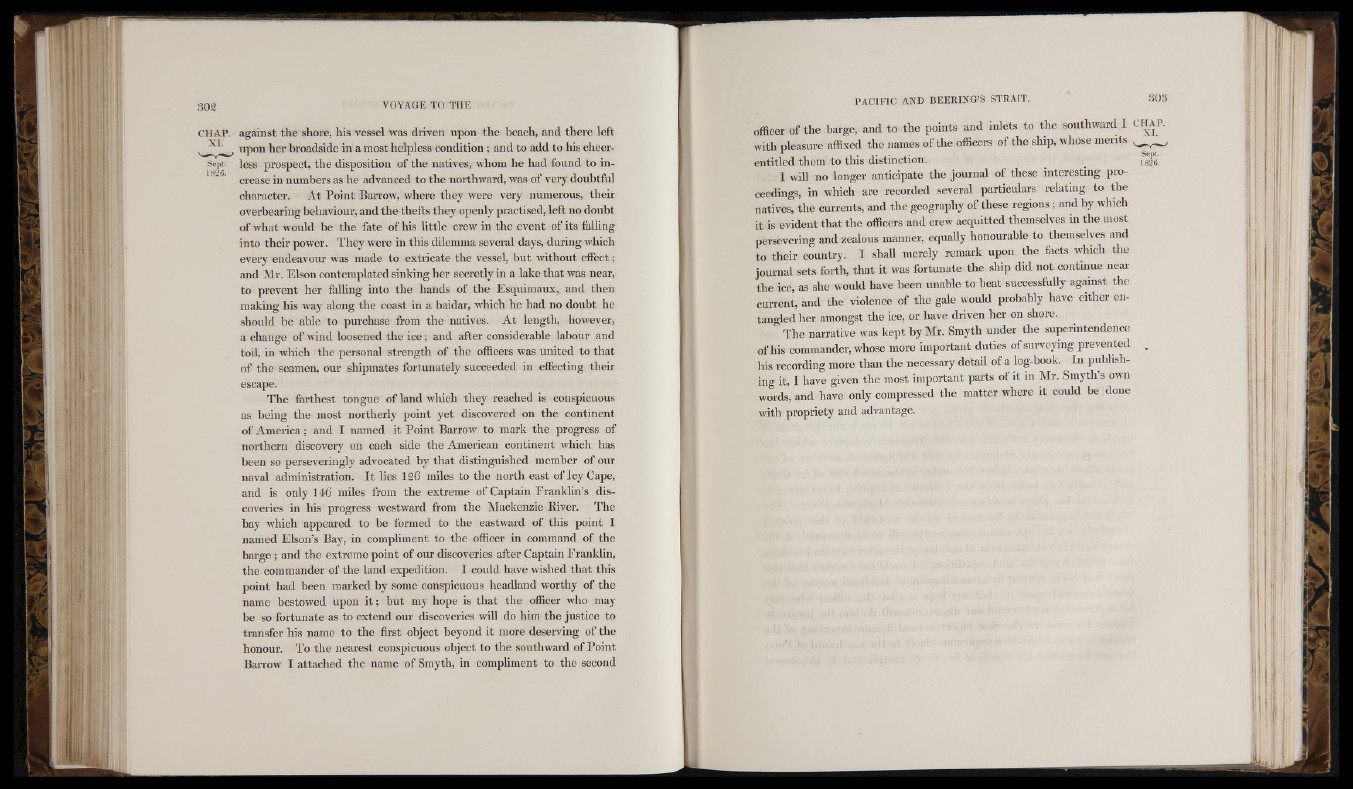
C H A P , against the shore, his vessel was driven upon the beach, and there left
Sc]>t.
1826.
upon her broadside in a most helpless condition ; and to add to his cheerless
prospect, the disposition of the natives, w'hom he had found to increase
in numbers as he advanced to the northward, was of very doubtful
character. At Point Barrow, where they were very numerous, their
overbearing behaviour, and the thefts they openly practised, left no doubt
of what would be the fate of his little crew in the event of its falling
into their power. They were in this dilemma several days, during which
every endeavour was made to extricate the vessel, but without effect;
and ]Mr. Elson contemplated sinking her secretly in a lake that was near,
to prevent her falling into the hands of the Esquimaux, and then
making his way along the coast in a baidar, which he had no doubt he
should be able to purchase from the natives. At length, however,
a change of wind loosened the ic e ; and after considerable labour and
toil, in which the personal strength of the officers was united to that
of the seamen, our shipmates fortunately succeeded in effecting their
escape.
The farthest tongue of land which they reached is conspicuous
as being the most northerly point yet discovered on the continent
of America; and I named it Point Barrow to mark the progress of
northern discovery on each side the American continent which has
been so perseveringly advocated by that distinguished member of our
naval administration. It hes 126 miles to the north east of Icy Cape,
and is only 146 miles from the extreme of Captain Franklin’s discoveries
in his progress westward from the Mackenzie Kiver. The
bay which appeared to be formed to the eastward of this point I
named Elson’s Bay, in compliment to the officer in command of the
barge; and the extreme point of our discoveries after Captain Franklin,
the commander of the land expedition. I could have wished that this
point had been marked by some conspicuous headland worthy of the
name bestowed upon i t ; but my hope is that the officer who may
be so fortunate as to extend our discoveries will do him the justice to
transfer his name to the first object beyond it more deserving of the
honour. To the nearest conspicuous object to the southward of Point
Barrow I attached the name of Smyth, in compliment to the second
4l . I
r
officer of the barge, and to the points and inlets to the UIJIUCI UJ.------------------------- ------ southward I C H A P .
with pleasure affixed the names of the officers of the ship, w'hose merits
entitled them to this distinction.
I will no longer anticipate the journal of these interesting proceedings,
in which are recorded several particulars relating to the
natives, the currents, and the geography of these regions; and by which
it is evident that the officers and crew acquitted themselves in the most
persevering and zealous manner, equally honourable to themselves and
to their country. I shall merely remark upon the facts which the
journal sets forth, that it was fortunate the ship did not continue near
the ice, as she would have been unable to beat successfully against the
current, and the violence of the gale would probably have either entangled
her amongst the ice, or have driven her on shore.
The narrative was kept by Mr. Smyth under the superintendence
of his commander, whose more important duties of surveying prevented
his recording more than the necessary detail of a log-book. In publishing
it, I have given the most important parts of it in Mr. Smyth’s own
words, and have only compressed the matter where it could be done
with propriety and advantage.
Sept.
1826.